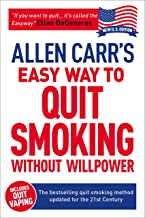Nicotine Withdrawal
Millions of people know from personal experience that smoking is a tough habit to kick. The reason is that nicotine is addictive. Even though nicotine’s high isn’t as dramatic as cocaine or heroin’s, it’s equally as addictive as those illegal drugs.
And nicotine withdrawal is very real. It’s why so many smokers try many times before they finally quit for good.
Nicotine affects all areas of your body, from your heart and blood vessels to your hormones, metabolism, and brain. When you don’t have it anymore, you go through withdrawal. You’ll physically crave that nicotine hit and become irritable if you can’t have it.
Nicotine withdrawal usually lasts only a month or so, but you could be fighting the mental battle against cigarettes for a long time.
Cluster Number:
Wiki Number:
Diagnosis:
US Patients:
World Patients:
Sex Ratio:
Age Onset:
Brain Area: binding to nicotinic receptors in the brain, increasing dopamine; opiate, serotonic, glutamic and other receptors apply in withdrawal
Symptoms: nicotine cravings, irritability, anxiety and difficulty concentrating; symptoms usually disappear after four weeks.
Progression:
Causes: genetics may affect the severity of withdrawal
Medications: several medications can be used
Therapies: increased exercise, avoiding “smoking situations,” avoiding temptations, friend-support
Youtube Video: 72 Hours of Nicotine Withdrawal
Amazon or Library Books:
Easy Way to Quit Smoking
Easy Way to Quit Vaping
Click the book to link or order from Amazon.
Click the book to link or order from Amazon.


